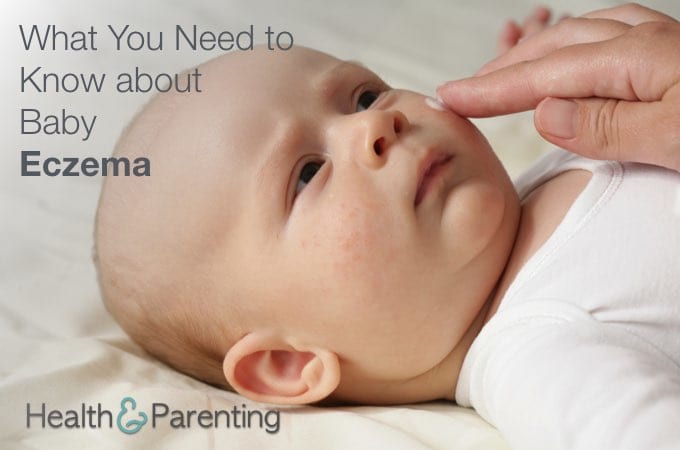All babies get rashes, it’s usually a normal part of infancy. But some babies experience something worse than just the typical rash. Some babies have to deal with eczema.
What is Eczema?
Eczema is a condition that inflicts the sufferer with dry, itchy patches of skin. Sometimes the condition is very mild, or only affects one specific area of the body, and other times… it could be prevalent just about everywhere.
How do I Know if My Baby Has Eczema?
As we already mentioned, most babies will get the occasional rash, but eczema is more severe than that. These dry, itchy patches of skin will be persistent, even if you work diligently to keep your baby slathered in lotion.
Baby eczema is often a hereditary condition, so it is possible you or someone in your family has already dealt with this condition and is better able to recognize it. Regardless, your child’s pediatrician should be able to make an official diagnosis.
What Does This Mean For the Future?
Eczema usually lasts through adolescence, but your child may outgrow it by adulthood. The condition will likely change some as your child grows older, shifting from being most prominent on the face, to appearing more on the elbows, knees, wrists, ankles, and hands. The patches also tend to get thicker and less red with age.
What Treatment is Available?
Unfortunately, there are no sure-fire cures for eczema, but there are things you can do to help prevent flares and to reduce your baby’s discomfort.
Allergies can be a big trigger for baby eczema flares, so using sensitive detergents and lotions, and avoiding foods that seem to make symptoms worse, is a good first step. Applying ointments like Aquaphor or Vaseline to affected areas can help to soothe the itch and protect the skin, minimizing flares. And nightly warm baths (followed by routine lotion applications) can help to prevent the skin dryness as well.
Keep baths limited to 10 minutes and avoid using bubble bath. Soap should also be used only sparingly—remember, your infant doesn’t get overly dirty during the day, and doesn’t need soap every night to stay clean. Most nights, the water will be enough. When you do use soap, opt for an eczema friendly brand. Your doctor or pharmacist should be able to make a recommendation.
For children with extreme cases of eczema, a steroid or oral anti-inflammatory may be recommended, but that is something to discuss with your pediatrician.
Does your baby have eczema? What tips do you have that helped soothe the itch?
Written by Leah Campbell, infertility advocate, adoptive mama, writer and editor. Find me @sifinalaska on Twitter.
This information is not intended to replace the advice of a trained medical doctor. Health & Parenting Ltd disclaims any liability for the decisions you make based on this information, which is provided to you on a general informational basis only and not as a substitute for personalized medical advice. All contents copyright Health & Parenting Ltd 2016. All rights reserved.










